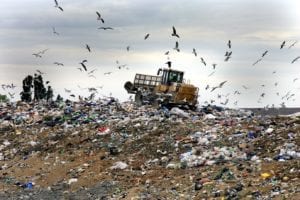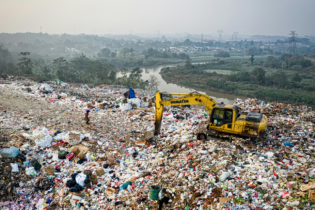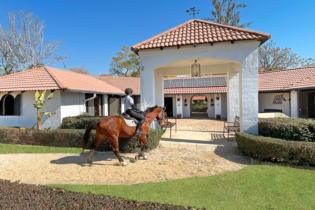Please click on the link below for the correction made to this story, regarding the City of Cape Town.
https://infrastructurenews.co.za/2012/10/26/cape-town-and-joburg-come-to-the-party-for-solid-waste-minimisation-2/ The diversion of waste to landfill is not only a focal point for municipalities in South Africa, but is also a drive across the globe – in particular in developed countries. Experts in this country are of the opinion that disposal must be a last resort and that waste be seen as a potential resource that can be utilised in such a way that it enhances environmental protection and socio-economic change.And so, both the Cities of Cape Town and Johannesburg have, in response to this global trend, put out tenders for precisely this. Johannesburg’s waste generation is on the increase and airspace of the landfills is depleting at an accelerated rate. The City is consequently exploring alternative waste treatment technologies that have the potential of significantly reducing waste going to its landfills. The City’s infrastructure and services department has requested an expression of interest from those who“have the experience and knowledge of implementing waste treatment technologies that will assist the City in dealing with its challenges. The ultimate objective of the procurement process will be for the City to enter into a partnership with a preferred bidder in the planning, designing, financing, building and operating of a proposed alternative waste treatment technology project.”
The City of Cape Town has a similar request but has tendered for a feasibility study“for the identification of investment measures as part of an Advanced Solid Waste Treatment System which would introduce modern and innovative waste treatment technologies in the City of Cape Town.” The study is to concentrate on the identification and assessment of treatment options defining frameworks for “waste treatment technologies prior to waste disposal in combination with an assessment of the potential of the developed measures for activities (biological treatment) under the Clean Development Mechanism(CDM).” The study however, should exclude the on-going activities to develop CDM landfill gas projects for the existing landfills. Traditional methods of diverting waste to landfill include the options of recycling or re-using materials or products that are suited to these options. Thermal treatment, better known as incineration, is another method of landfill diversion and is used extensively in both the EU and the US. The bottom line is that biodegradable waste should be diverted from landfills due to the capacity to generate methane and contribute to climate change. Methane has around 21 times the capacity of carbon dioxide to cause global warming. Cape Town’s request for biological treatment options in line with the CDM includes an avoidance of anaerobic digestion on landfills. The mechanism suggested is aerobic treatment through composting and proper soil application of the compost, and anaerobic digestion in closed reactors that are equipped with biogas recovery and a combustion and/or flaring






